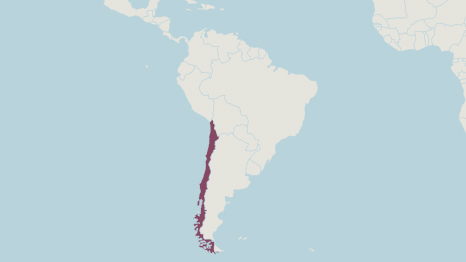STEM education in Chile
Making good education possible for everyone! This is the principle guiding Chile on the path toward a knowledge-based society. The country wants to become less dependent on demand and price development for copper, gold, and lithium. This increases the value of education as a raw material: knowledge becomes an important resource for social stability and economic growth. The process of reform comes with some general and some very specific questions: What does education need to be capable of today? Which teaching and learning opportunities does a student in San Pedro de Atacama need, and how are these different from the educational needs of a student in Santiago?
Education in Chile
Beyond the general challenges, such as the low salaries of public school teachers and a discrepancy in quality between public and private schools, Chile also wants its uniqueness to be reflected in its education policy. One example is the Mapuche culture: The indigenous “People of the Land” in the southern part of Chile maintain unique rites and traditions. The challenge is to create a bridge between scholastic learning and real-life lessons on the one hand, while also maintaining and honoring the knowledge of the Mapuche people on the other. The reform process encompassed two factors: High-quality teacher training, and strong STEM education that forms foundation for a life of equal opportunity for all Chileans.

- Three-tier school system: Preschool (Enseñanza preescolar), Primary school (Educación general básica), Secondary school (Educación media)
- Education budget: 4.9 % of GDP (2015)
- WEF Ranking Maths and Science (2018): 99 of 137
- PISA study 2015: 45 of 71
- Important issues: Educational justice and reform of the teaching profession; lack of young women studying in STEM fields
Our engagement in STEM
Siemens Stiftung supports the reform process in the education system with active partners in politics, business, and educational practice:
International educational program Experimento
Since 2011, Siemens Stiftung has worked in Chile for improved teacher training and continuing education in STEM subjects in addition to early education for young girls and boys. In pursuit of this goal, Experimento has been adapted for preschools and primary schools to meet the country’s curriculum requirements. The increasing inclusion of indigenous knowledge links tradition with the future. There is a strong emphasis on the subject of “climate,” which encourages thoughts and actions that serve sustainable development.
An important part of our work is close cooperation with local partners, such as Universidad de Chile, Pontificia Universidad Católica de Chile (PUC), Universidad de Valparaíso, or Fundación Choshuenco. We are all connected by the common goal of making STEM education an important part of sustainable development.
Design Thinking in STEM
To encourage skills such as creative problem solving, innovative ability, and critical thinking – known as 21st Century Skills – Siemens Stiftung has expanded its international educational program to include STEM and creativity. The Design Thinking in STEM program is a collaboration with The Index Project. Since 2019, the CEDEL (Centro UC Desarrollo Local) sustainability center at Pontificia Universidad Católica de Chile in Villarrica is holding workshops for teachers and multipliers. The focus is on combining the Sustainable Development Goals (SDGs) with the creative process in STEM teaching.
STEAM Territorios (STEM regions)
Successful STEM education on the local level is dependent on two things: incorporating the needs and circumstances of each region, and providing an effective approach along the entire education chain. Together with our partners, we’re lending our support to the STEAM Territorios model. These networks are based on collaboration between regional stakeholders and enhance the content, reach, and didactic methods of science and technology education along the education chain. In Chile, STEAM Territorios have been established in Valparaiso, Santiago Centro, Macro Zona SUR, Antofagasta, and the Aysen/Cohyaique region.
Round table for STEM education
We helped launch a working group for STEM and early childhood education together with our partner universities, representatives from the education ministry, and two Chilean foundations. We want to create a pedagogic network in Latin America that strengthens inquiry-based learning in kindergarten. Partners from neighboring countries are also taking part in the working group.
OLADIC
To encourage dialog between experts, institutions, and Experimento partners in and outside of Chile, we support the online platform OLADIC (Observatorio Latinoamericano de Didáctica de las Ciencias) from the Pontificia Universidad Católica de Valparaíso.
Red STEM Latinoamérica
Since 2011, Siemens Stiftung has supported teachers and educators in eight Latin American countries with the foundation’s international education program Experimento, aiming to increase understanding in STEM subjects for children and young people and to awaken their interest in scientific and technological interrelationships. The Spanish website Red STEM Latinoamérica provides a comprehensive overview about the project and supports networking activities by individual stakeholders. Since 2020, you also find there a collection of about 500 open educational resources (OER) specifically designed for Latin American Schools.
Christine Niewöhner
christine.niewoehner@siemens-stiftung.org
+49 89 540487 119










